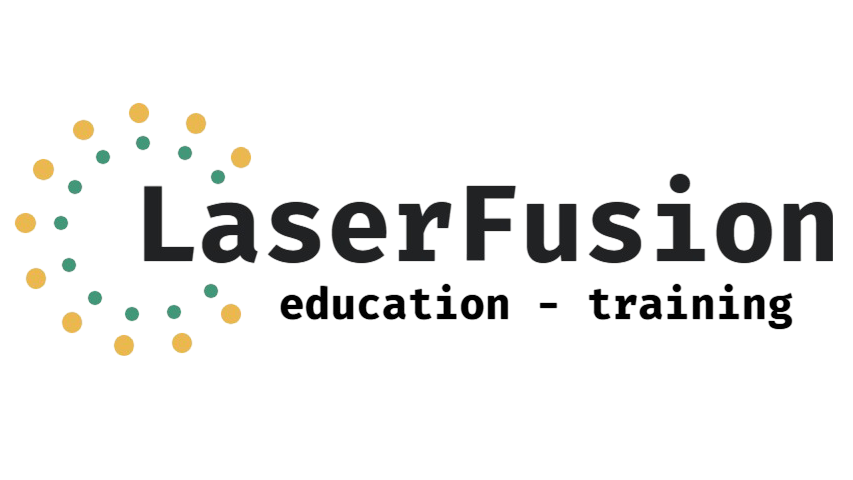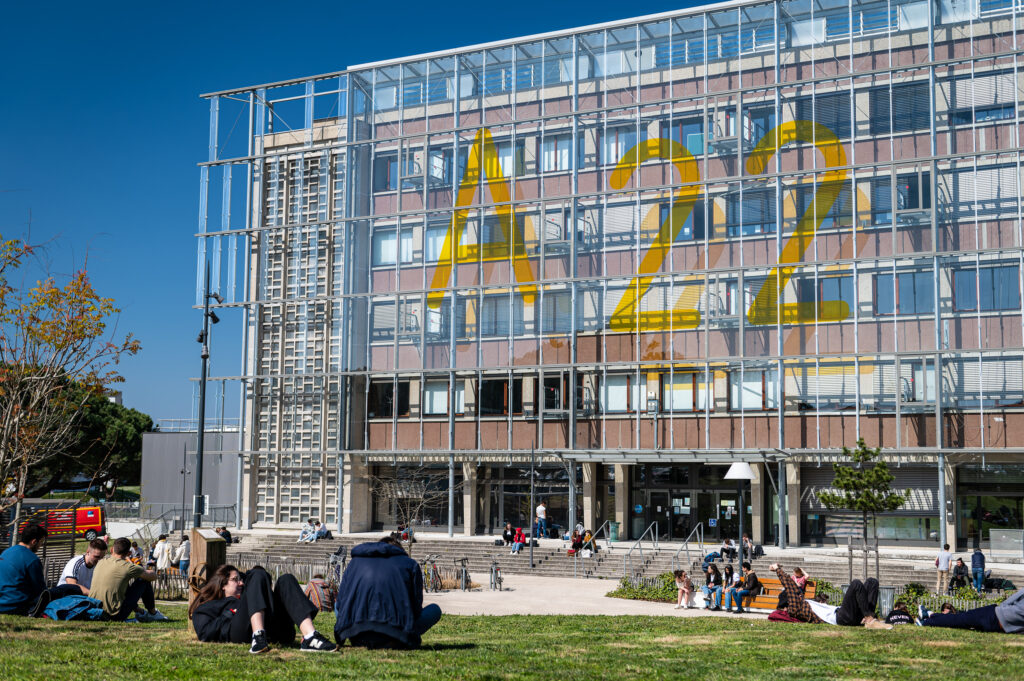
The very first event of the LaserFusion, an educational-training intensive program (IP) on “Physics and Technology of Inertial Fusion Energy”, is organised at the University of Bordeaux in France, from July 15 to 25, 2025.
The classes cover a progression from the basic plasma physics processes to more advanced topics related to laser-driven fusion, including laser-plasma interaction diagnostics. The school consists of theoretical lectures, practical sessions, and seminars. Moreover, a visit to Laser Mégajoule (LMJ) has been arranged for the attendees. The program begins with an initial test to assess attendees’ prior knowledge of plasma physics. Final exams at the end of the IP intend to evaluate what the attendees learned during the program. Upon completion of the school, students fill out an online questionnaire to provide feedback and evaluate the school.
A total of 18 students (from final-year Bachelor’s to PhD level) will participate, selected from the eight LaserFusion partners: Université de Bordeaux (UBx), Universidad Politécnica de Madrid (UPM), University of York (UoY), Friedrich-Schiller-Universität Jena (FSU), Consiglio Nazionale delle Ricerche (CNR), the Extreme Light Infrastructure (ELI-ERIC), Institut Polytechnique de Paris (IPP), and Hellenic Mediterranean University (HMU).
The pedagogical team coordinating the school at the University of Bordeaux consists of Professor João Jorge Santos, Professor Dimitri Batani, and Professor Emmanuel d’Humières. They are responsible for delivering the core lectures and organizing the hands-on training sessions of the IP. Dedicated seminar lectures will be delivered by members of the LaserFusion consortium partners: David Blackman (ELI-beamlines, Czech Republic), Gabriele Cristoforetti (CNR, Italy), Ioannis Fitilis (HMU, Greece), Sébastien Le Pape (IPP, France), John Pasley (UoY, UK), Luca Volpe (UPM, Madrid), Matt Zepf (FSU, Germany), while a webinar from the associated partner, Focused Energy GmbH, is delivered by Prof. Markus Roth.
Schedule of the theoretical courses, practical courses and seminars
An indicative timetable for the two weeks is presented below.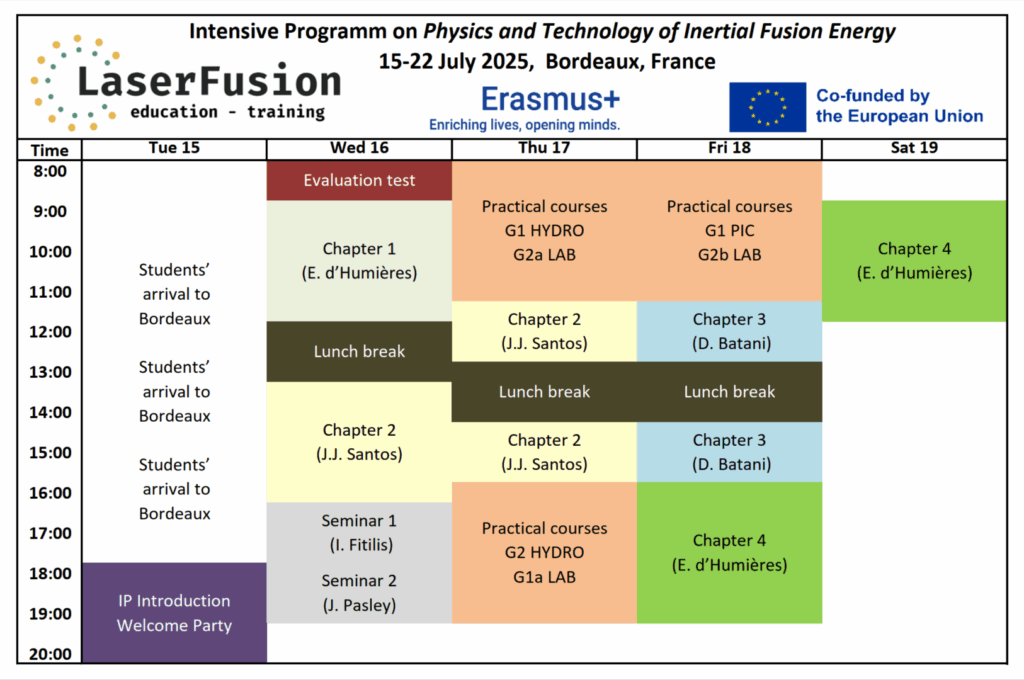
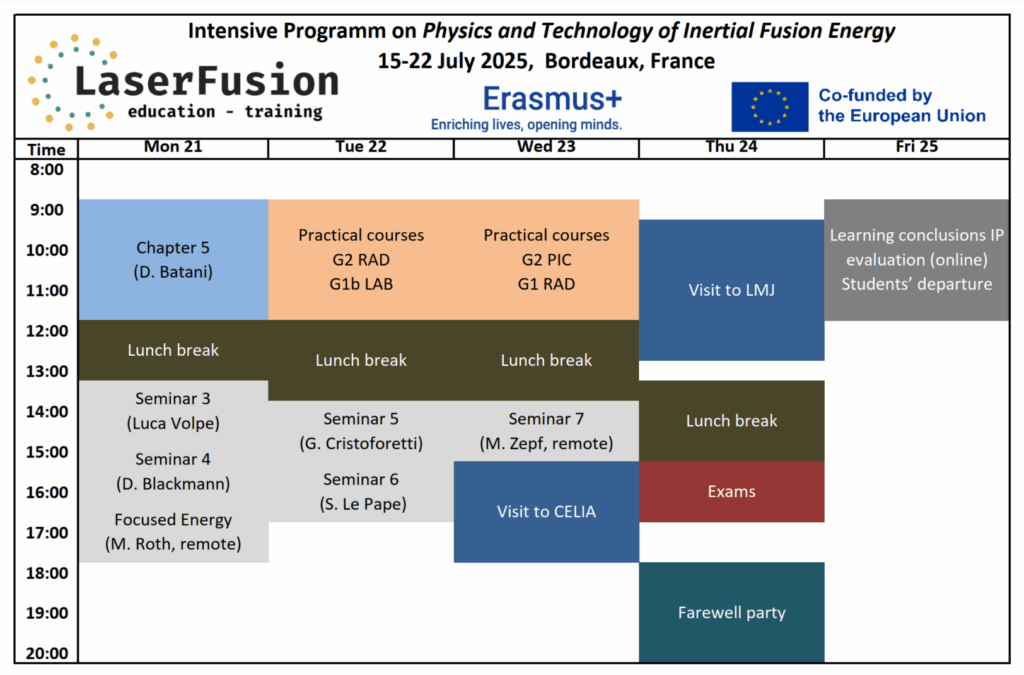
The theoretical courses cover the following topics:¤ Chapter 1: Introduction and classification of plasmas + individual charge drifts in plasmas¤ Chapter 2: Hydrodynamic description of a plasma¤ Chapter 3: Radiative properties of plasmas¤ Chapter 4: Kinetic description of waves and instabilities in plasmas¤ Chapter 5: Principles of inertial confinement fusion
The practical courses include both laboratory and numerical sessions.
Specific seminars, delivered by all consortium’s partners, are as follows: ¤ Seminar 1: Laser-based plasma diagnostics (optical diagnostics) ¤ Seminar 2: Hydrodynamics driven by short-pulse laser-plasma interactions ¤ Seminar 3: Ion stopping power: theory, experiments and diagnostics ¤ Seminar 4: Theory of laser plasma instabilities in direct drive ICF ¤ Seminar 5: Laser-plasma experiments and diagnostics on laser plasma interactions ¤ Seminar 6: Plasma diagnostics for inertial fusion energy ¤ Seminar 7: Achieving ignition and gain in inertial fusion energy
A webinar delivered by our associated partner, Focused Energy GmbH, provides insight into the commercialization of IFE.
Zoom links for the seminars and the webinar can be found on the final program of the school, along with more details for the courses.
Visits and social activities
More details about the visits to CELIA laboratory and to Laser MegaJoule (LMJ) and Touristic visit of Bordeaux city center and Garonne banks can be found below on the final program.
The final program: final program
Orientation maps
All activities will take place within the Talence part of the “Talence-Pessac Campus” of University of Bordeaux.The residence for the lodged students is on the Pessac part of the Campus, at walking distance of maximum 20’ to the different locations of the planned activities, or alternatively at 2 to 4 tram stops (line B).
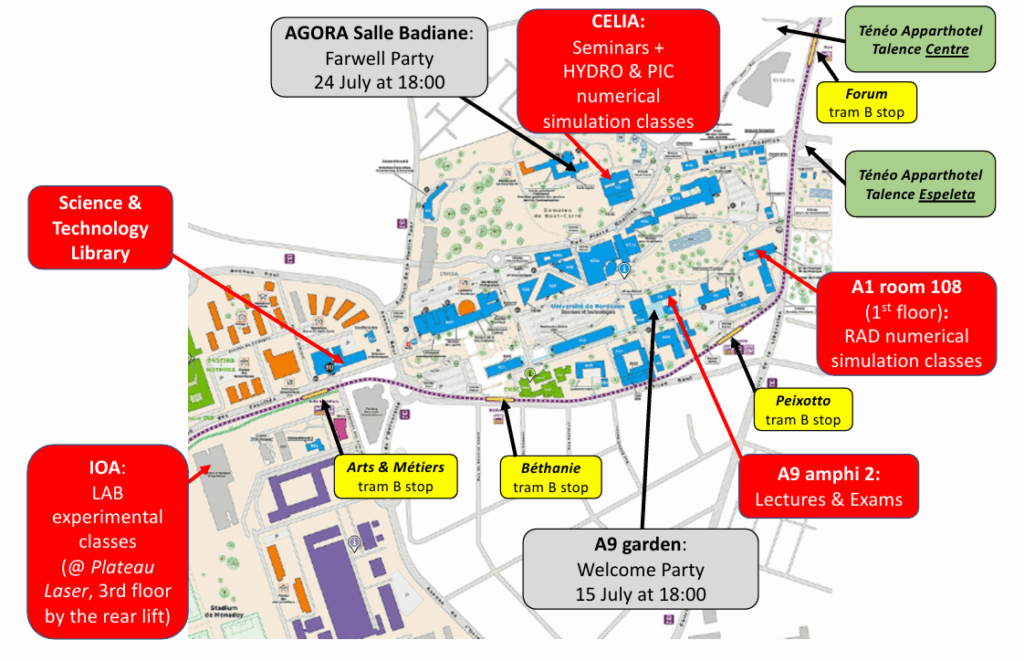
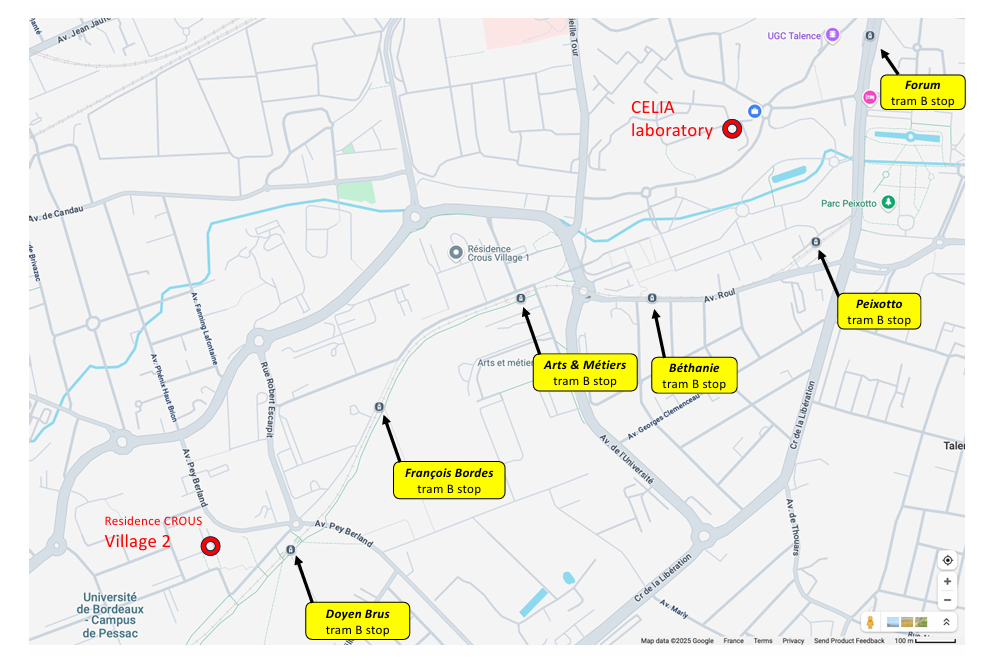
Student information
Students are expected to join the school on the 15 July. Upon your arrival, please pass by the office of João Santos at CELIA laboratory in order to fill in administrative formalities, recover your scholarity certificate and student card from Univ. Bordeaux, and your room keys (for those being lodged at the student residence).The room keys should be handled back to João Santos on the departure day, 25 July, from 9 am. There are no in-person activities scheduled that day, so you can organize your travel back to your home institutions without any time constraints (besides handling back your room keys).The 18 enrolled students will be divided in two groups G1, G2, for the practical courses. Each group is split in sub-groups of 4 or 5 students for the experimental practical courses (LAB); You will be working by teams of 2 or 3 students. You can find more details about the splitting and the group, subgroup, that you belong in the final program.
Students lodging and life in Campus
Students will be lodged in individual rooms (13 m²) at the CROUS residence « Village 2 », located at 7 avenue Pey Berland, in Pessac.
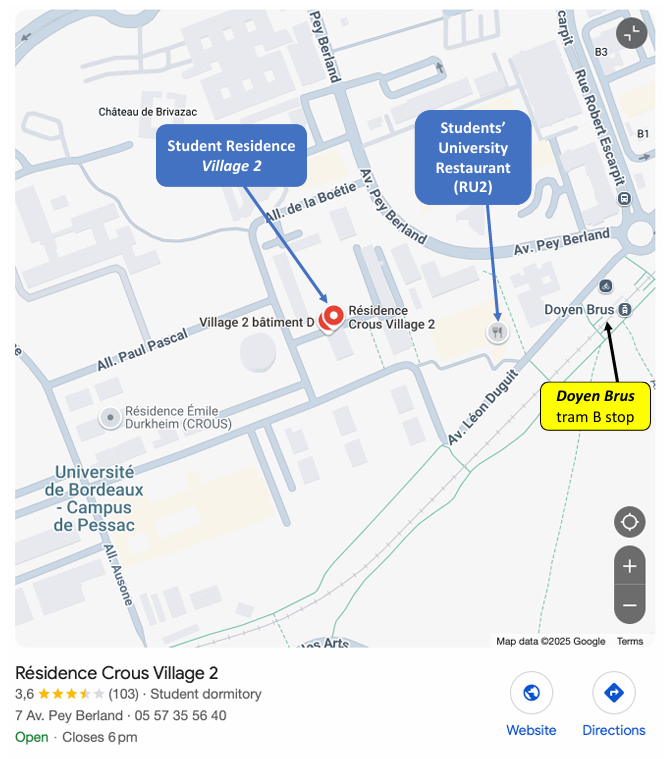
Googlemaps
The residence provides a “Welcome Kit” that includes bed linens, toilet paper, trash bags, cleaning products and a “Toiletries Kit” that includes toilet linens, bath mat, soap and shampoo pouch.A Student Guide and a Bordeaux City Guide will be handled to you the day of your arrival.Meanwhile, information for newcomers and about life in campus can be found here:
